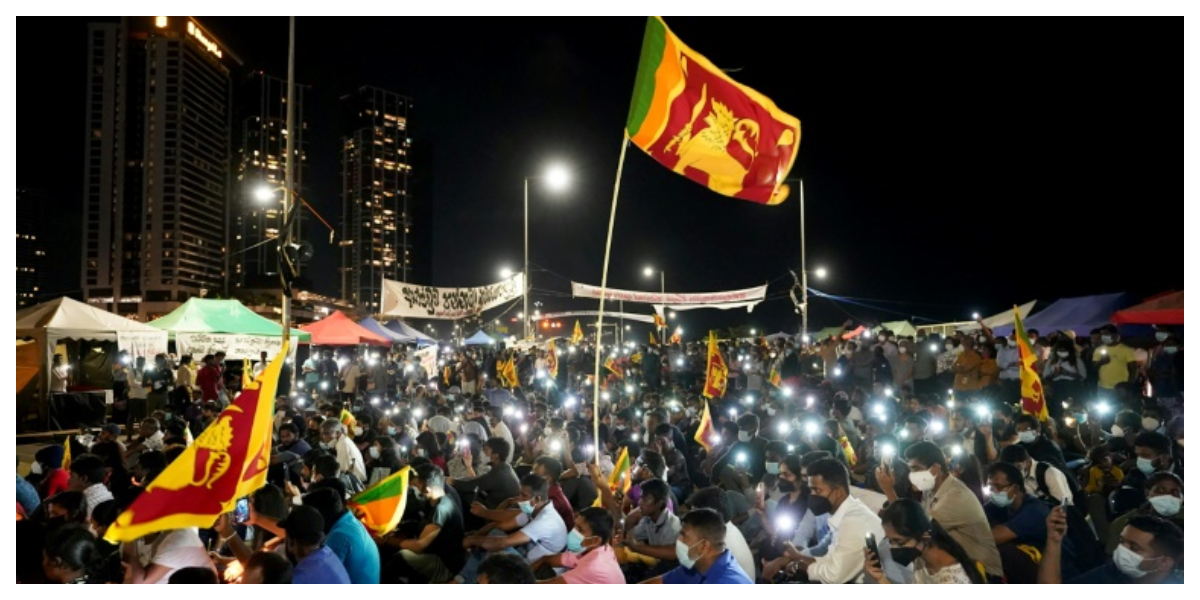COLOMBO: Sri Lanka’s severe shortages of food, gasoline, and life-saving medications would worsen unless an international bailout is arranged, the country’s finance minister warned on Friday, as inflation touched a new high.
Ali Sabry, who is in Washington for discussions with international lenders, said that while an IMF rescue could take months, he was looking for $2.5 billion in emergency funding from other sources.
In an online press conference, Sabry informed reporters, “It’s going to get worse before it gets better.” “The next few years are going to be excruciating.”
However, he expressed optimism that Sri Lanka would “come out of this strong,” and that “we may never have to go for another IMF programme.”
His comments came as official data revealed that Sri Lanka’s inflation touched a new high for the sixth month in a row, as the country was gripped by unprecedented shortages.
According to the statistics office, the broad-based National Consumer Price Index (NCPI) increased by 21.5 percent year on year in March, more than four times the 5.1 percent inflation of the previous month.
[embedpost slug=” sri-lanka-students-mob-pms-home-over-economic-crisis/”]
In March, food inflation hit a record high of 29.5 percent, the highest level ever.
The figures are set to grow further: the state-owned oil firm boosted the price of diesel, which is widely used in public transportation, by 64.2 percent.
The country’s worsening economic woes have sparked clashes at nationwide protests calling for President Gotabaya Rajapaksa to resign due to mismanagement and corruption.
Sri Lanka requested emergency assistance from the International Monetary Fund this week, but was warned that its external debt was “unsustainable” and that it needed to be “restructured” before any aid could be provided.
“Adequate indications that debt sustainability will be restored would be required for approval of an IMF-supported programme for Sri Lanka,” the IMF said.
Last Monday, the government stated that it would default on its external debt, and that valuable foreign cash would be set aside to fund needed food and medication.
– “Worst financial catastrophe in history” –
Sabry claimed he conceded to the IMF that Sri Lanka’s recent economic miscalculations in lowering taxes exacerbated the problem and that Colombo should have sought its assistance far sooner.
“We’ve accepted responsibility for our errors… There is no doubting that we are in the midst of the largest financial crisis in our country’s history “he stated
Sabry went on to say that Colombo will pursue debt restructuring as the IMF has asked, while also relying on India for more credit lines to buy petroleum and other necessities.
In the next four months, he hopes to collect “around $500 million” from the World Bank to import food and cooking gas, he said.
To address the foreign exchange issue, Sri Lanka will look to other significant bilateral lenders such as China and Japan.
The severe shortages have sparked widespread dissatisfaction. On Tuesday, police fought with protestors in central Sri Lanka, killing one and injuring almost 30 others.
In the last six weeks, at least eight individuals have died while waiting in huge queues for petrol.
Imports, notably basics, have slowed due to the country’s foreign exchange crisis.
The amount of rice, milk powder, sugar, lentils, and canned fish sold in stores has been rationed.
Sri Lanka’s economy has collapsed since the onset of the pandemic.




















